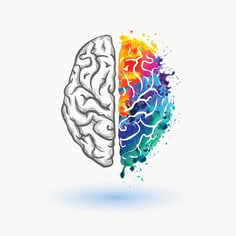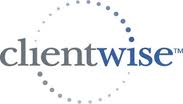Developing an Emotionally Intelligent Team
 The best in the business know that a critical part of their role is mentoring, coaching and developing their team. It's extremely important to gain the skills and experiences they will need in order to be even more valuable to the future team. It begins with developing a higher sense of self-awareness in the individual and a keener awareness of others: two of the most important emotional intelligence skills.
The best in the business know that a critical part of their role is mentoring, coaching and developing their team. It's extremely important to gain the skills and experiences they will need in order to be even more valuable to the future team. It begins with developing a higher sense of self-awareness in the individual and a keener awareness of others: two of the most important emotional intelligence skills.
There are a host of personality assessment tools available on the market from firms like Myers-Briggs and Kolbe, as well as our own proprietary ClientWise DISC Assessment. These tools serve to provide your team with an invaluable source of insights about their natural and adaptable behaviors and communication styles. DISC centers around four different personality traits: Dominance, Influence, Steadiness and Compliance. The process reveals the characteristics required for superior performance, matching the person to the position more accurately. By understanding these patterns, you have better insights into individuals and teams in the areas of workplace, leadership, management, sales, hiring and employee development.
Unfortunately, most practices use these tools at some point for a quarterly team meeting or annual review and then soon after gather them up and file them away. These tools, however, are specifically designed to be used on a regular and ongoing basis to strengthen team trust and communication by giving team members a language and structure to understand how to communicate more effectively with each other – and better communication fosters greater trust.
Here at ClientWise we try to review at least one team member’s DISC assessment each month (often in conjunction with a team meeting), where the individual can share their thoughts about situations that have arisen where they felt really supported, as well as situations where perhaps they didn’t feel supported or where other team members could have better communicated what they needed from the individual.
Think about how you can more regularly and effectively engage your team in using these tools. Think about what it says about your firm culture if you keep introducing new tools and exercises but never really follow through on any one thing. Doesn’t it send a message to the team that the next new thing you want to try isn’t really that important and they shouldn’t invest too much time and effort because you’ll soon be on to something else? By doing something and committing to it, you’re wordlessly telling the team that this is something very important.
Don’t let these tools gather dust. Bring them forward and keep them up-to-date. Make sure that each week people are actively looking at each other’s DISCs and sharing that information. Every time there’s a new hire, make sure they quickly get involved in the assessment program and that you review their profile with the rest of the team. Throughout the coming year, we plan to share a number of new teams tools, exercises and advice related to the DISC assessment.
Coaching Questions from this article:
- What are the personality and behavioral styles of each member of your team? What motivates them and what causes stress? How do they communicate and respond to conflict?
- Match the individual personalities of your team members to their roles and responsibilities. Do you have the right people in the right roles? Are there responsibilities that could be reallocated to improve team chemistry?
- What can you do to facilitate the ongoing sharing of DISC profiles among team members to foster better communication, cooperation and trust?
Topics: Team Development Leadership


